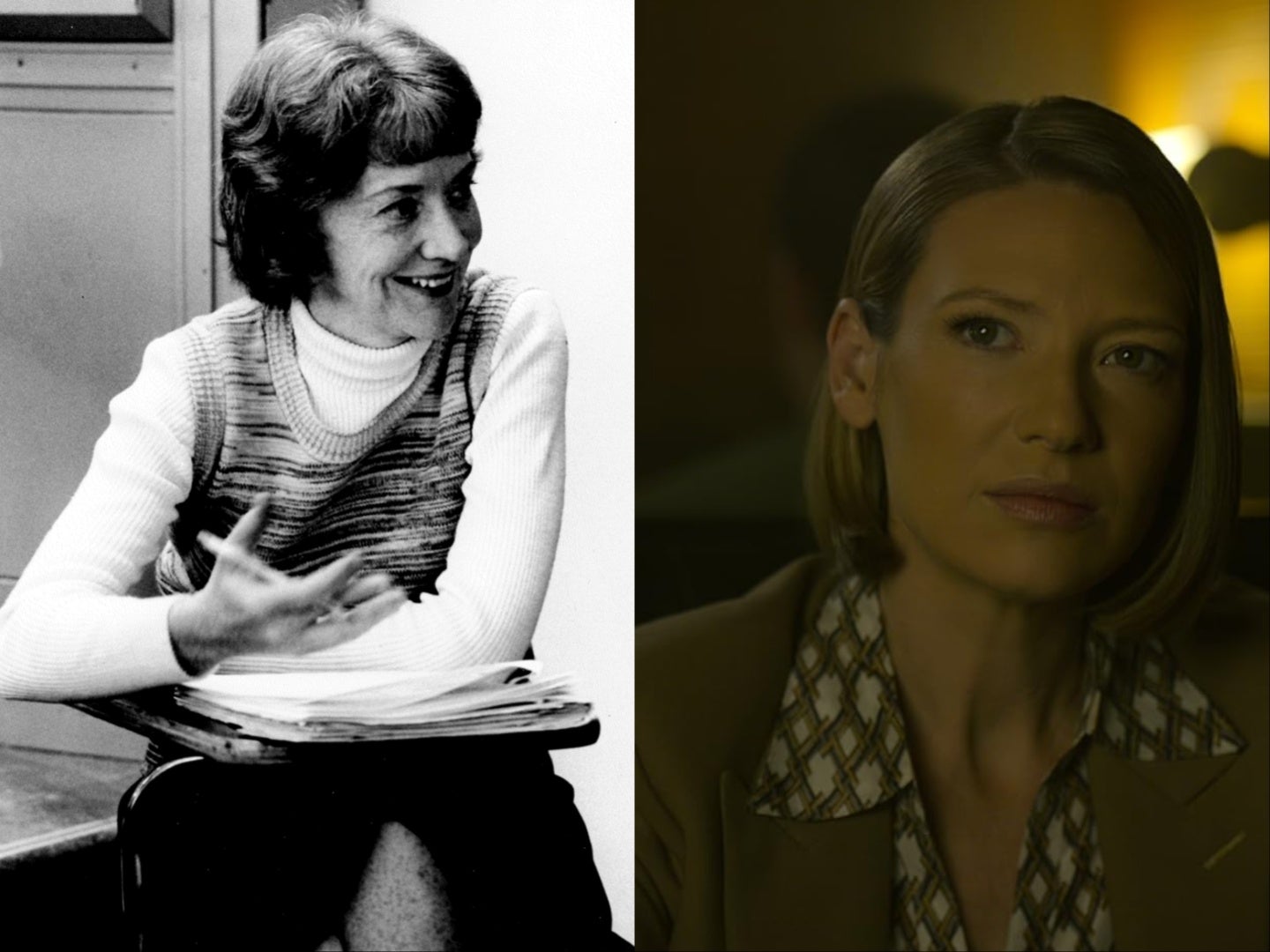Forensic nurse who inspired ‘Mindhunter’ FBI technique criticizes hit Netflix series
Forensic nurse and professor Ann Burgess began consulting in the late 1970s with famed FBI agents John Douglas and Robert Ressler for groundbreaking work that changed the Bureau’s methods for hunting killers

Your support helps us to tell the story
From reproductive rights to climate change to Big Tech, The Independent is on the ground when the story is developing. Whether it's investigating the financials of Elon Musk's pro-Trump PAC or producing our latest documentary, 'The A Word', which shines a light on the American women fighting for reproductive rights, we know how important it is to parse out the facts from the messaging.
At such a critical moment in US history, we need reporters on the ground. Your donation allows us to keep sending journalists to speak to both sides of the story.
The Independent is trusted by Americans across the entire political spectrum. And unlike many other quality news outlets, we choose not to lock Americans out of our reporting and analysis with paywalls. We believe quality journalism should be available to everyone, paid for by those who can afford it.
Your support makes all the difference.The pioneering psychiatric nurse who helped create the FBI’s blueprint for profiling violent sexual offenders has hit back at the popular Netflix series Mindhunter and its portrayal of characters inspired by her team.
Ann Burgess, who answered the Bureau’s call for consultation in the 1970s as sexual violence spiked against a dearth of law enforcement expertise, told The Independent: “The backgrounds of the three of us [were] totally wrong – and that’s a shame.”
Burgess was speaking in the days ahead of the Tribeca Film Festival premiere of Mastermind: To Think Like A Killer – a docuseries about her groundbreaking work which will stream on Hulu in July.
She said she believed the 2017 Netflix drama Mindhunter – which was inspired by the work of Burgess and intrepid agents John Douglas and Robert Ressler – became derailed by too much of a focus on imagined personal lives, rather than the gripping cases the trio worked on.
“It’s no surprise they didn’t get a third season,” Burgess said. “They got too caught up in the after-story, or whatever they were talking about, on the three of us – and trying to work that up instead of staying with the cases.”

Burgess was particularly disappointed that Dr Wendy Carr, played by Anna Torv, was a psychologist, not a forensic nurse – as Burgess was in real life. As a trailblazer in the field of forensic and psychiatric nursing, she’d like the new Hulu docuseries to shine a spotlight on the profession she has helped advance.
“I’m very hopeful that nursing, especially forensic nursing or psychiatric nursing, gets a good share of understanding, because nurses have not been well portrayed,” she said.
The new series follows Burgess’ 2021 book A Killer By Design: Murderers, Mindhunters, And My Quest To Decipher The Criminal Mind – which details her work, beginning in the 1970s, alongside agents John Douglas and Robert Ressler. The pair had begun what they called a “criminal personality study,” conducting recorded interviews with infamous offenders such as “Co-ed Killer” Edmund Kemper and Chicago nurse-killer Richard Speck. Burgess helped them fine-tune their approach and methodology for data collection and analysis, creating a framework for criminal profiling that had never existed previously.
The trio eventually published 1992’s Crime Classification Manual: A Standard System for Investigating and Classifying Violent Crimes.
Burgess continues to teach courses at Boston College’s Connell School of Nursing – as well as consulting with other pioneers and experts for an elite Super Sleuths group which meets virtually once a month to pore over cold cases. Members include an old Quantico contact, a DNA expert from Maryland, an entomologist and even one of the lawyers for Adnan Syed, whose case formed the basis for the podcast Serial.
Burgess also concedes that, while technology and methodology have advanced crime solving at a “fast pace,” the evolution of crime itself may be equally rapid.
“Who knows where we’ll be in the next decade?” she told The Independent, noting growing issues with cybersecurity and social media “There’s been so much crime and reaction; will there be a difference in victim response? We don’t know that. Or will there be new and different kinds of crimes that we’ll have to look into?”
Join our commenting forum
Join thought-provoking conversations, follow other Independent readers and see their replies
Comments